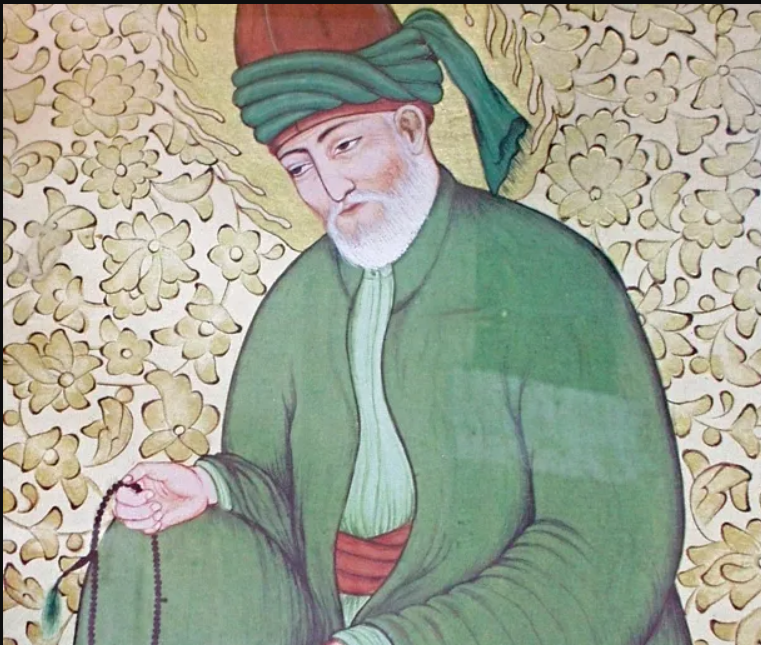The Enduring Appeal of Rumi – The Mystic Poet of Love

(UPSC GS-I & Essay – Culture, Philosophy, Literature & Spirituality)
Who Was Rumi?
-
Full name: Jelaluddin Rumi (also known as Jelaluddin Balkhi)
-
Born: 1207 in Balkh (present-day Afghanistan); migrated to Konya, Turkey due to Mongol invasions
-
Initially: An orthodox Islamic scholar
-
Transformation: Profoundly changed after meeting Shams of Tabriz, a wandering dervish, who became his spiritual mentor and muse.
📖 His Works and Philosophy:
-
Major works:
-
Masnavi (often called the “Quran in Persian verse”)
-
Diwan-i-Shams Tabrizi (dedicated to Shams)
-
-
Themes:
-
Divine love, mystical union, spiritual seeking
-
Love as a metaphor for union with the divine, not romantic or erotic
-
-
Sufism: His writings are deeply rooted in Sufi Islamic traditions but transcend organized religion.
🌍 Why Rumi Remains Universally Relevant:
-
Beyond religion: Promoted a “religion of love” not bound to institutional faiths (as noted by biographer Brad Gooch)
-
Speaks to the soul’s journey, emotional depth, and human vulnerability
-
Loved by people across faiths, including non-Muslim readers worldwide
🧠 Modern Popularity:
-
Best-selling poet in the U.S., outselling Shakespeare and Eliot (Farrukh Dhondy)
-
Quoted by celebrities like Madonna, Chris Martin (Coldplay), and used in healing and meditative spaces
-
Famous quotes:
-
“This being human is a guest house...”
-
“I once had a thousand desires but in my one desire to know you, all else melted away.”
-
Notable Translations and Authors:
-
Coleman Barks: Made Rumi accessible to English readers with emotional resonance
-
Farrukh Dhondy: Rumi: A New Selection explores why his mysticism appeals beyond religion
-
Brad Gooch: Rumi’s Secret traces how Shams transformed Rumi from a scholar to a mystic
-
Maryam Mafi & Azima Kolin: Rumi’s Little Book of Life captures Rumi’s spiritual metaphors
🌀 Rumi & Shams – Spiritual Union:
-
Their relationship is viewed as a divine connection, not romantic
-
Rumi believed Shams lived within him after his disappearance (possibly murder)
-
The love in his verses symbolizes the soul’s yearning for God, not earthly desire
UPSC Relevance:
Prelims:
-
Identify Rumi as a 13th-century Sufi poet, born in Balkh, lived in Konya
-
Know major works: Masnavi, Diwan-i-Shams
Mains (GS-I / Essay):
-
Rumi as a symbol of interfaith spirituality, universal love, and mysticism
-
Influence on Islamic literature, Sufism, and cross-cultural philosophy
